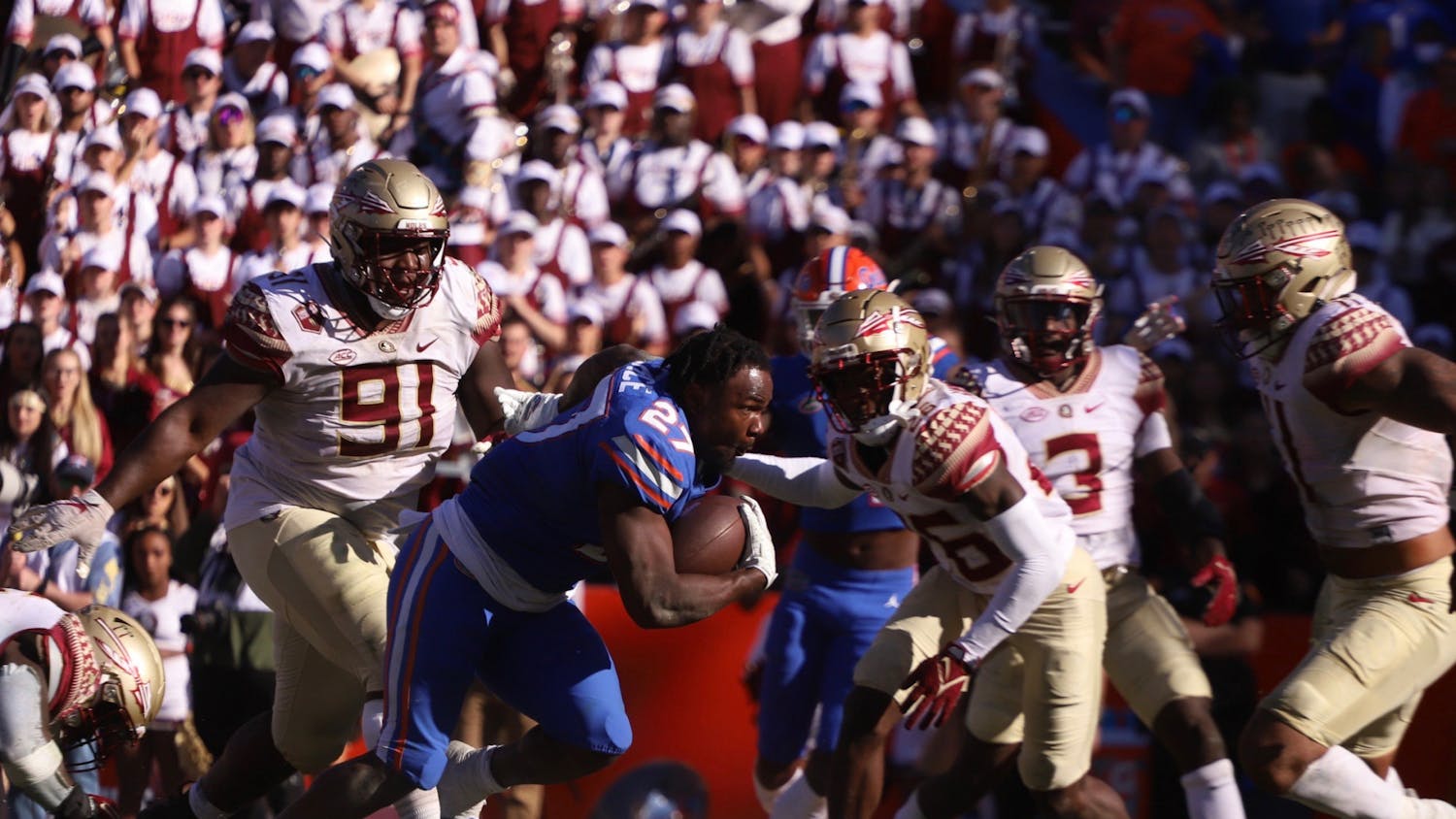“I’m just here so I won’t get fined.”
These were the words Seattle Seahawks’ running back Marshawn Lynch repeated a total of 29 times during Super Bowl Media Day on Tuesday.
After the NFL informed the star running back he would be fined $500,000 if he did not make an appearance at Media Day, Lynch made himself available for all of 4 minutes and 51 seconds, setting a timer on his phone.
Lynch has made it clear what he thinks of the media. He acts like he is above the inquiries into his performances on the field, even as his teammates and coaches face the same questions on a daily basis without complaint.
Lynch has been fined by the NFL on countless occasions. His particular distaste for reporters and TV cameras has resulted in bad publicity aimed toward Lynch, the Seattle Seahawks and the NFL for allowing his behavior to go on as it has.
Many NFL players, including Lynch’s teammates, have since voiced their support, backing Lynch’s insistence that being a professional athlete should not involve answering tedious questions from reporters.
But being an athlete in the age of social media and technology is not exclusively about performing on the field, track or court anymore. Athletes are public figures who are required to make themselves available. They hold press conferences and grant interviews, fielding questions about every detail of their lives.
While there are many professional athletes who would rather spend their free time doing anything other than sitting behind a microphone, there are a handful who embrace the spotlight and enjoy the media’s scrutinizing eye.
Lynch’s Seattle Seahawks teammate Richard Sherman thrives on the media’s fascination with his every word. During his press conferences, part of the fun is waiting to hear what Seattle’s best cornerback has to say. Sherman’s love for himself is what the media cannot get enough of, proven by his infamous rant during last season’s NFC Championship game in which he declared himself to be the best cornerback in the league.
Richard Sherman might be one of the most conceited players in the history of the NFL, but at least he embraces it. He isn’t afraid to use the media to his advantage. He doesn’t shy away. Lynch, on the other hand, has not only upset members of the media but has alienated some of his fans by shunning all media attention that could be used by fans to feel closer to the star athlete.
For a young kid looking for a role model, Marshawn Lynch is not anyone’s first choice.
If Lynch is so dissatisfied with the grueling media availability schedules athletes have to comply with, he should take it up with the Players’ Union or the league office. If he can get other players to act with him, maybe something can be done to reduce the media’s involvement and presence after practices and games.
Instead of being proactive, however, Lynch has chosen to pave his own path, one which will lead him absolutely nowhere.
My argument is this: Lynch and all other professional athletes chose the careers they did. They chose to be in the spotlight, to be in the public eye and to potentially become “celebrities” in the world of sports. If Lynch dislikes the media so much, why on Earth did he think being a superstar running back in the NFL would be a wise career move?
Members of the media chose their careers, too. They have a job to do just like Lynch does. It is a journalist’s responsibility to gather information and to question until he or she gets answers.
I am aware that the relationship between the media and high-profile figures is not always a perfect one, but Marshawn Lynch should, at the very least, have the decency to treat the media with the respect it deserves.
Erica Brown is a UF journalism junior. Her column appears on Mondays.
[A version of this story ran on page 7 on 2/2/2015 under the headline “Famous athletes should respect media, not shun it"]





